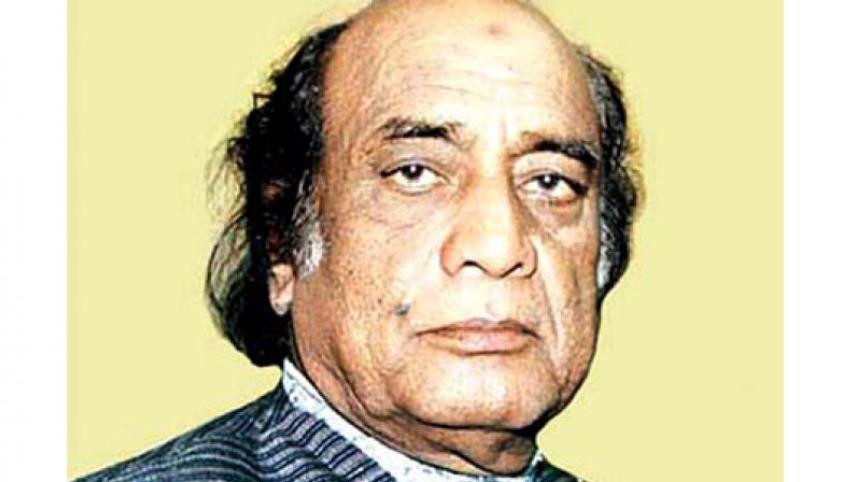Mehdi Hassan's celestial height in Ghazal

July 16, 2019 is the 92nd birth anniversary of Mehdi Hassan, the Shahenshah of ghazal. He had a baritone voice with a classical base. The melodic voice enraptured listeners and fans in an aura of magical melody. Thus Lata Mangeshkar while speaking of Mehdi Hassan said, " “Aisa lagta hai ke unke gale mein bhagwan boltein hain,” (It feels like the creator is singing through his voice).
He inherited 16th generation 'Kalwana' legacy of classical music. His father Azim Khan and his uncle Ismail Khan both were well versed in dhrupadi branch of classical music. After partition of India they came to Karachi.
His musical career started in 1952 when he started singing thumri in Radio Pakistan Karachi. In 1956 he lent his voice as a playback singer for the song "nazar milte hi dil ki baat ka charcha na ho jaye" (with the meeting of the eyes people may start talking about the voices of the heart) for the film Shikaar
He came into limelight when he sang the song Goolo mei rang bhare baade nau bhar chale written by eminent poet Faiz Ahmed Faiz for the film Farangi (foreigner). From then on Mehdi Hassan never had to look back. Then he sang the celebrated ghazal Ranjeesh hi sahi dil dukhane chale ao (Let the restlessness 0f my heart continue at least come to add to my woes) of Faiz Ahmed Faiz.
To add to his mastery, Mehdi Hassan composed the music of Bahadur Shah Zafar's ghazal "Baat karni mujhe mushkil". He continued to add to his repertoire. Dagh's "Ghazab kiya tere wade par etbar" (what a blunder I committed I trusted your word). The next one was equally illustrious-Ghalib's "dil-e-nadaan tujhe huwa kiya hai" (my fatuous heart what has happened to you). And on he went; Mir Taqi Mir's "patta patta boota boota" (leaves and leaves buds and buds).
His forte was equally brilliant, when he started singing as a playback singer. A string of lovely film songs followed - "kaise kaise log" (Tere sheher mein, 1965); "Duniya kisi ki pyar mein"(Jaag Utha Insaan, 1966); and "Dil-e-weeran hai teri yaad hai" (Aaina , 1966). Then Sohail Rana the master composer cast the mesmerizing spell- Mujhe tum najar se girato rahi ho" (Do Raha, 1967); Robin Ghosh -another maestro composed " Tum zid to kar rahi ho" (Daag 1967) and "Pyar bhari do sharmile nain" (Chahat 1974). "Ye kagaaz ye phool jaise chehre" (Devar Bhabi 1967 music Master Inayat Hussain) was yet another unforgettable piece.
Mehdi Hassan was a singer whose songs transcended the boundary. He was equally popular in Pakistan and India. In 2005 Atal Bihari Vajpayee former Prime Minister of India invited him to India as his guest for a session of songs and for his ayurvedic treatment.
Mehdi Hassan suffered a stroke in 2000 and suffered for twelve years. He was born on 16 July 1927 in Luna Jodhpur district of Rajputana and passed away on 13 June 2012.



 For all latest news, follow The Daily Star's Google News channel.
For all latest news, follow The Daily Star's Google News channel.
Comments